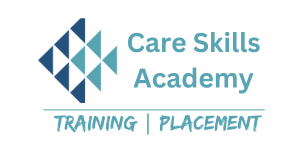Drones, also known as unmanned aerial vehicles (UAVs), have become an integral part of various industries, from photography and agriculture to logistics and surveillance. As the use of drones expands, so does the need for skilled technicians who can maintain, troubleshoot, and repair these sophisticated machines. Enrolling in a drone repairing course can open up a world of opportunities, providing you with the skills needed to thrive in this rapidly growing field. In this blog, we’ll explore the benefits of pursuing a drone repairing course and what you can expect to learn.
Understanding the Importance of Drone Maintenance and Repair
Drones are complex devices that combine aerodynamics, electronics, and software to perform various tasks. Due to their complexity, they require regular maintenance and sometimes repairs to ensure optimal performance and longevity. With the increasing reliance on drones in critical applications such as agriculture, infrastructure inspection, and emergency services, the need for qualified drone repair technicians is greater than ever. A drone repairing course provides the essential knowledge and hands-on experience required to keep these machines operational and safe.
What You’ll Learn in a Drone Repairing Course
A comprehensive drone repairing course will cover a wide range of topics, giving you the technical expertise needed to diagnose and fix common issues. Here are some key areas you can expect to learn:
- Drone Basics and Components
- Understanding the fundamental parts of a drone, including the frame, motors, propellers, and control systems.
- Electronics and Circuitry
- Learning about the electronic components of drones, such as flight controllers, ESCs (Electronic Speed Controllers), and GPS modules, along with basic circuitry and soldering techniques.
- Battery Management and Safety
- Understanding the types of batteries used in drones, proper charging and storage methods, and safety precautions to prevent hazards.
- Flight Mechanics and Aerodynamics
- Grasping the principles of flight, including lift, thrust, drag, and how these forces affect drone performance.
- Firmware and Software Troubleshooting
- Learning how to diagnose and resolve software-related issues, including updating firmware and configuring flight control settings.
- Remote Control Systems
- Understanding how remote controls and transmitters work, including binding processes and troubleshooting connectivity issues.
- GPS and Navigation Systems
- Exploring the role of GPS in drone navigation and how to troubleshoot common GPS-related problems.
- Camera and Gimbal Repair
- Learning how to maintain and repair drone cameras and gimbals, which are crucial for aerial photography and videography.
- Sensor Calibration and Repair
- Understanding the various sensors used in drones, such as gyroscopes and accelerometers, and how to calibrate and repair them.
- Diagnosing Mechanical Failures
- Techniques for identifying and fixing mechanical issues, such as motor failure, propeller damage, and structural problems.
- Drone Assembly and Disassembly
- Gaining hands-on experience in assembling and disassembling drones, a critical skill for repairs and custom builds.
- Regulations and Compliance
- Learning about the regulations governing drone use and repair, ensuring that your work complies with local and international laws.
- Safety Protocols
- Emphasizing the importance of safety when working with drones, including personal protective equipment (PPE) and safe work practices.
Hands-On Experience and Practical Skills
One of the primary advantages of a drone repairing course is the hands-on experience it provides. Students get to work directly with drones in a controlled environment, allowing them to apply theoretical knowledge to real-world scenarios. This practical experience is crucial for building confidence and proficiency in diagnosing and repairing drones.
Career Opportunities in Drone Repair
Upon completing a drone repairing course, you’ll be equipped to pursue various career paths. Opportunities exist in drone repair shops, UAV manufacturing companies, and even as a freelance technician. As the drone industry continues to grow, specialized repair technicians will be in high demand, offering a stable and potentially lucrative career. Additionally, you may choose to expand your expertise into related fields, such as drone programming or custom drone builds, further enhancing your career prospects.
Conclusion
In today’s technology-driven world, drones play an increasingly vital role across numerous industries. The need for skilled drone repair technicians is growing in tandem with the industry’s expansion. A drone repairing course offers a comprehensive education, combining theoretical knowledge with practical skills, making it an excellent investment for those interested in a cutting-edge career. Whether you’re passionate about technology or seeking a dynamic and evolving profession, a drone repairing course can set you on the path to success in the UAV industry.

